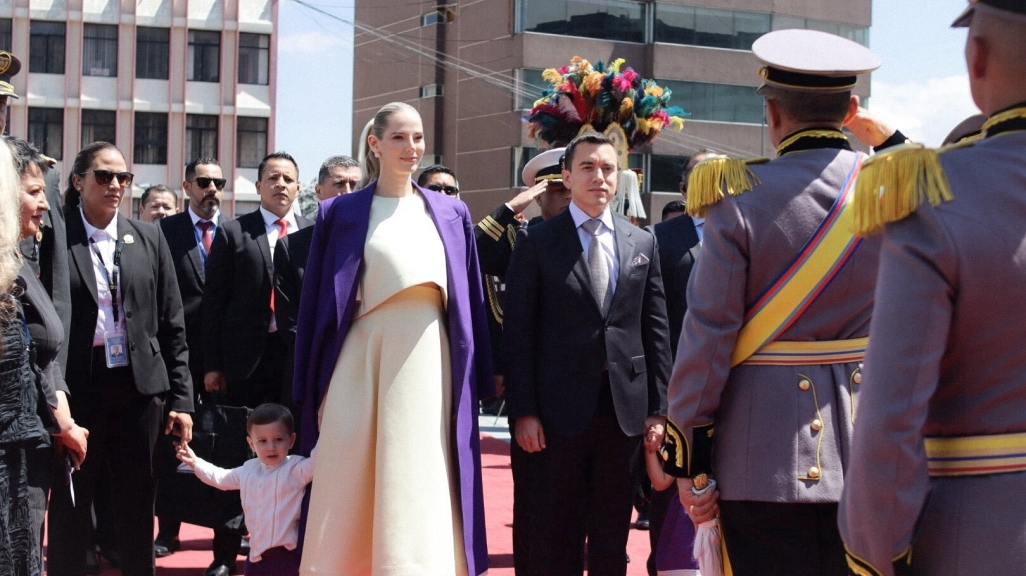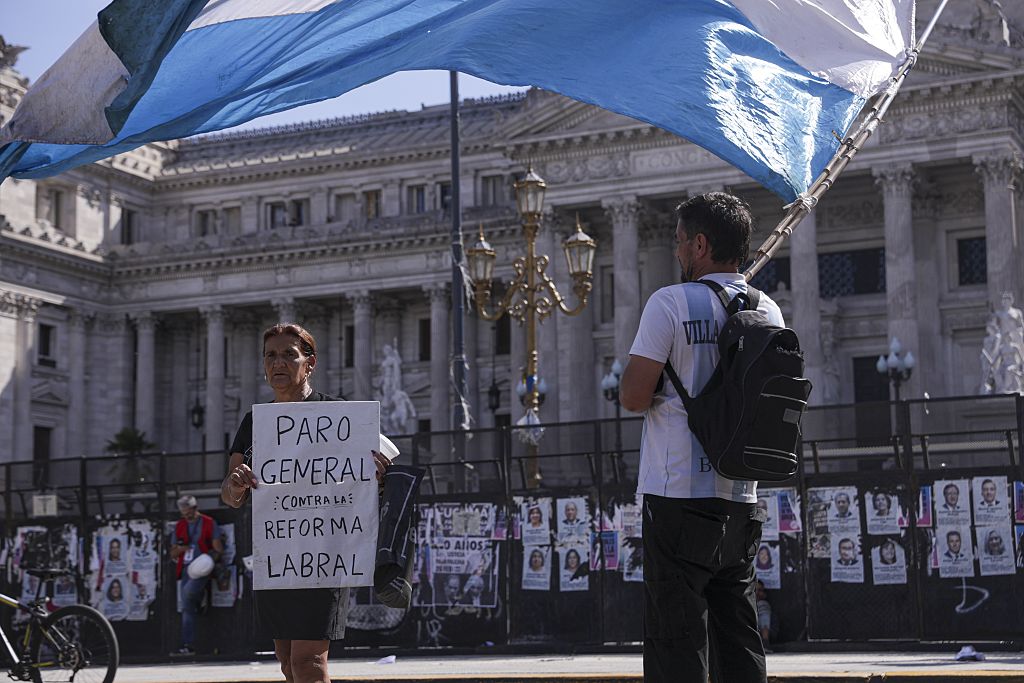Influencer Spouses Are Remaking Latin American Politics
Influencer Spouses Are Remaking Latin American Politics
"Social media has indelibly changed politics in Latin America," writes AS/COA's Chase Harrison for World Politics Review about the new trend in the region.
Like a lot of young influencers, Lavinia Valbonesi used social media, namely Instagram, to communicate the details of a highly staged life to her followers. Her posts showed her dressed in athleisure and slouchy suits, slinging juices and applying lotions, rotating between Miami and Vail, holding babies, constantly clutching her phone.
Lavinia Valbonesi was like a lot of young influencers, that is, until May. That’s when her husband—Daniel Noboa, the 35-year-old heir to a banana fortune—decided to run for president in Ecuador’s snap election, the first round of which was held in August. Suddenly, her floppy straw hats and patterned bikinis were replaced by a wardrobe of all white. Meticulously documented on her Instagram feed, Valbonesi hit the trail, where she could now be seen shaking hands, doing radio spots, and handing out food. To be sure, the posts were intermixed with the occasional shot of a designer dress or date night with her now-presidential candidate husband, but for the most part Valbonesi’s transformation was complete. She became a consummate political spouse.
On November 23, Valbonesi also became Ecuador’s first lady, after Noboa, who won the second-round runoff election in October, was sworn into office. Much has already been made of her husband’s ascendance to the country’s top office at just 35. “Millennial” is a common appellation for Noboa in the headlines, and he himself talks of representing a “new generation” of leadership in his country. But Valbonesi is as much an emblem of this new generation as Noboa. In fact, she exemplifies a new type of political figure altogether: the influencer spouse.
Over the past decade, social media has indelibly changed politics in Latin America, with its importance in campaigning further accelerated by the pandemic. Not only was in-person campaigning dangerous, but the region also saw a strong rise in digitization. Mobile phones and the internet proliferated, bringing social media into the hands of more users.
In Ecuador, as elsewhere, that has made digital outreach, especially toward the 60 percent of the population under 30, critical to any successful campaign. “You can change the course of the election on social media when you’re talking to a new generation on social media,” explained Grace Jaramillo, a professor at the University of British Columbia who is Ecuadorian…








